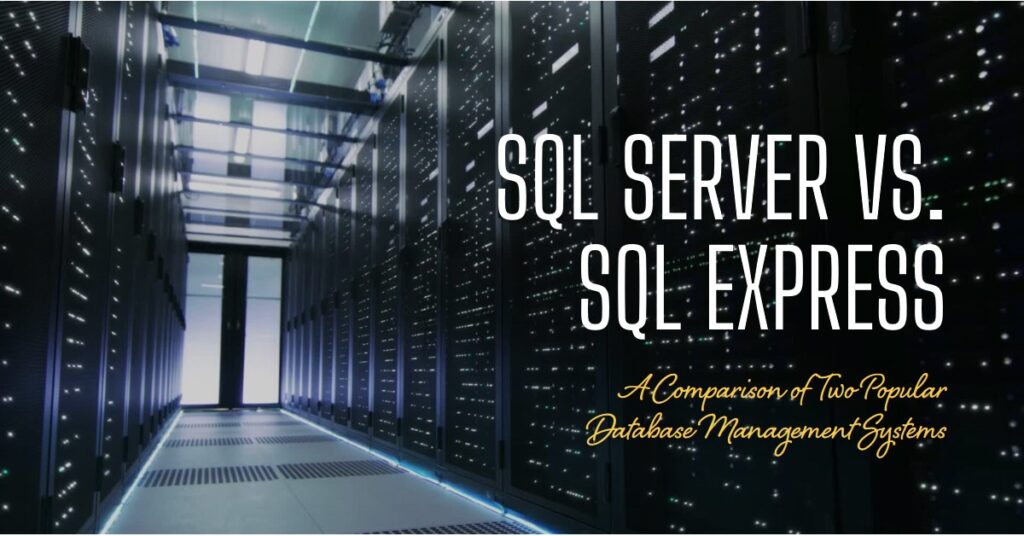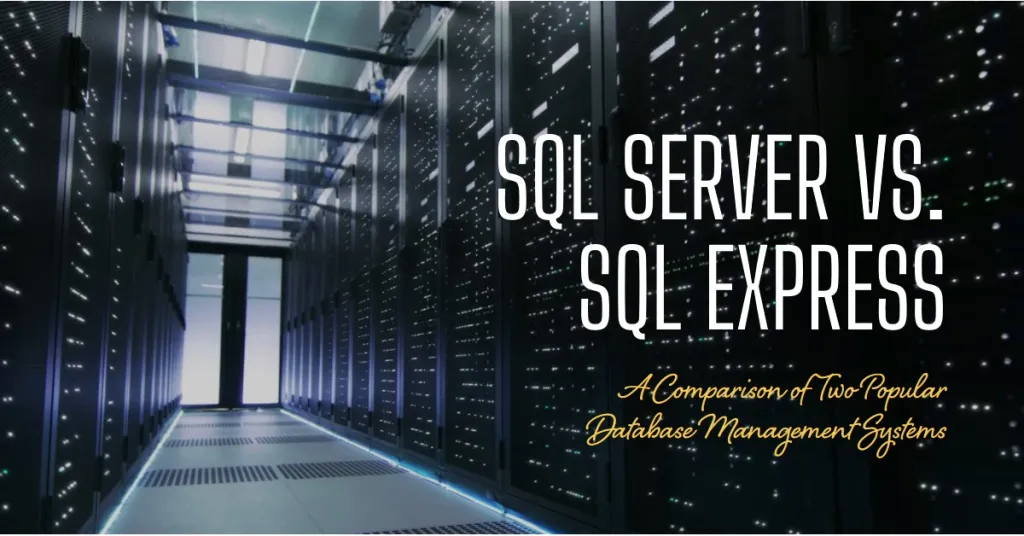SQL Server vs SQL Express: A Comparison

SQL Server and SQL Express are both relational database management systems (RDMS) developed by Microsoft. They share many features and capabilities, but they also have some important differences. In this article, we will compare SQL Server and SQL Express in terms of when to use them, what kind of applications they support, how many concurrent users they can handle, and what are the advantages and disadvantages of each one over the other.
When to use SQL Server or SQL Express?
SQL Server is the premium offering that delivers comprehensive data management and business intelligence solutions for enterprise-level workloads. SQL Server is suitable for mission-critical applications that require high performance, scalability, availability, security, and advanced analytics. SQL Server also supports unlimited virtualization, cloud integration, and end-user access to data insights.
SQL Express is the entry-level, free edition that is ideal for learning and building desktop and small server applications. SQL Express is suitable for small to medium-sized businesses that need a basic data management and reporting solution. SQL Express also supports common development tools for on-premises and cloud environments, enabling effective database management with minimal IT resources.
What kind of applications can SQL Server or SQL Express support?
SQL Server can support any kind of application that requires a robust and reliable RDMS. SQL Server can handle complex queries, large volumes of data, multiple concurrent transactions, and sophisticated analytics. SQL Server can also integrate with various data sources, such as other databases, files, web services, or big data platforms. SQL Server can also provide rich reporting and visualization tools, such as Power BI, to enable data-driven decision making.
SQL Express can support simple applications that require a lightweight and easy-to-use RDMS. SQL Express can handle basic queries, moderate amounts of data, limited concurrent transactions, and simple analytics. SQL Express can also connect to other databases or files, but with some restrictions on the size and number of databases. SQL Express can also provide basic reporting and visualization tools, such as Report Builder or SSRS, to enable data exploration.
How many concurrent users can SQL Server or SQL Express handle?
SQL Server can handle thousands of concurrent users without compromising performance or availability. SQL Server can scale up by using more powerful hardware resources, such as CPU cores, memory, or disk space. SQL Server can also scale out by using distributed architectures, such as clustering, replication, or partitioning. SQL Server can also leverage in-memory technologies, such as columnstore indexes or memory-optimized tables, to boost query speed and concurrency.
SQL Express can handle up to 32 concurrent users with acceptable performance and availability. SQL Express has some limitations on the hardware resources it can use, such as 1 CPU core, 1 GB of memory, or 10 GB of disk space per database. SQL Express does not support distributed architectures or in-memory technologies. Therefore, SQL Express may experience performance degradation or resource contention when the number of users or the size of data increases.
What are the advantages and disadvantages of SQL Server or SQL Express over each other?
SQL Server has the following advantages over SQL Express:
- It offers more features and functionalities to meet diverse business needs.
- It delivers higher performance and scalability to support larger workloads.
- It provides better availability and reliability to ensure business continuity.
- It enables more advanced analytics and insights to drive business value.
SQL Server has the following disadvantages compared to SQL Express:
- It requires a license fee that depends on the edition and the number of cores used.
- It demands more IT expertise and maintenance to manage the system.
- It may have compatibility issues with some older applications or platforms.
SQL Express has the following advantages over SQL Server:
- It is free to download and use for any purpose.
- It is easy to install and configure with minimal IT skills.
- It is compatible with most applications and platforms that support SQL Server.
SQL Express has the following disadvantages compared to SQL Server:
- It has fewer features and functionalities to meet complex business needs.
- It has lower performance and scalability to support larger workloads.
- It has less availability and reliability to ensure business continuity.
- It offers less advanced analytics and insights to drive business value.
Conclusion
SQL Server and SQL Express are both powerful RDMS that can support various applications and scenarios. However, they also have some significant differences that should be considered before choosing one over the other. In general, SQL Server is more suitable for enterprise-level applications that require high-end data management and business intelligence solutions. On the other hand, SQL Express is more suitable for small-scale applications that require basic data management and reporting solutions.


